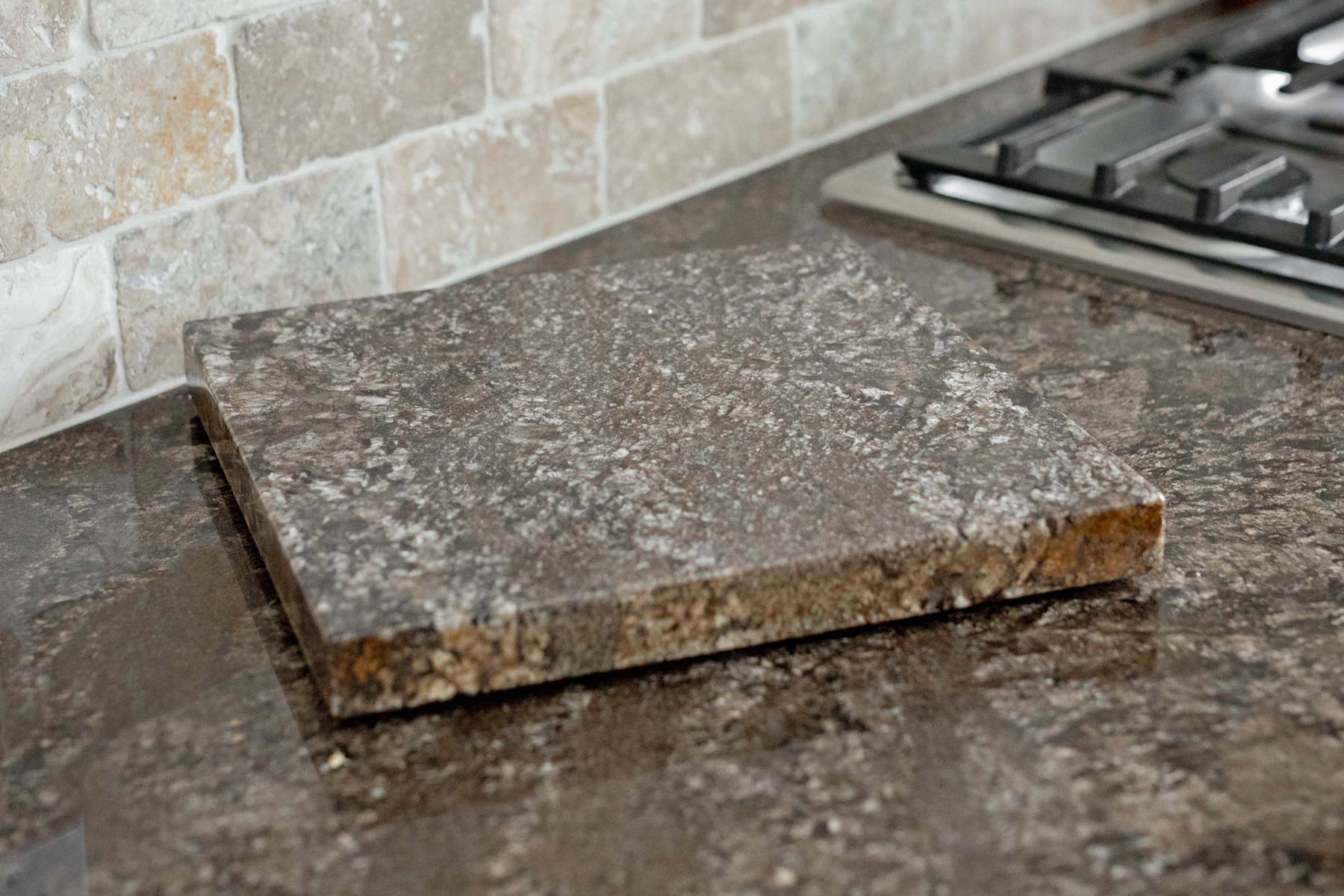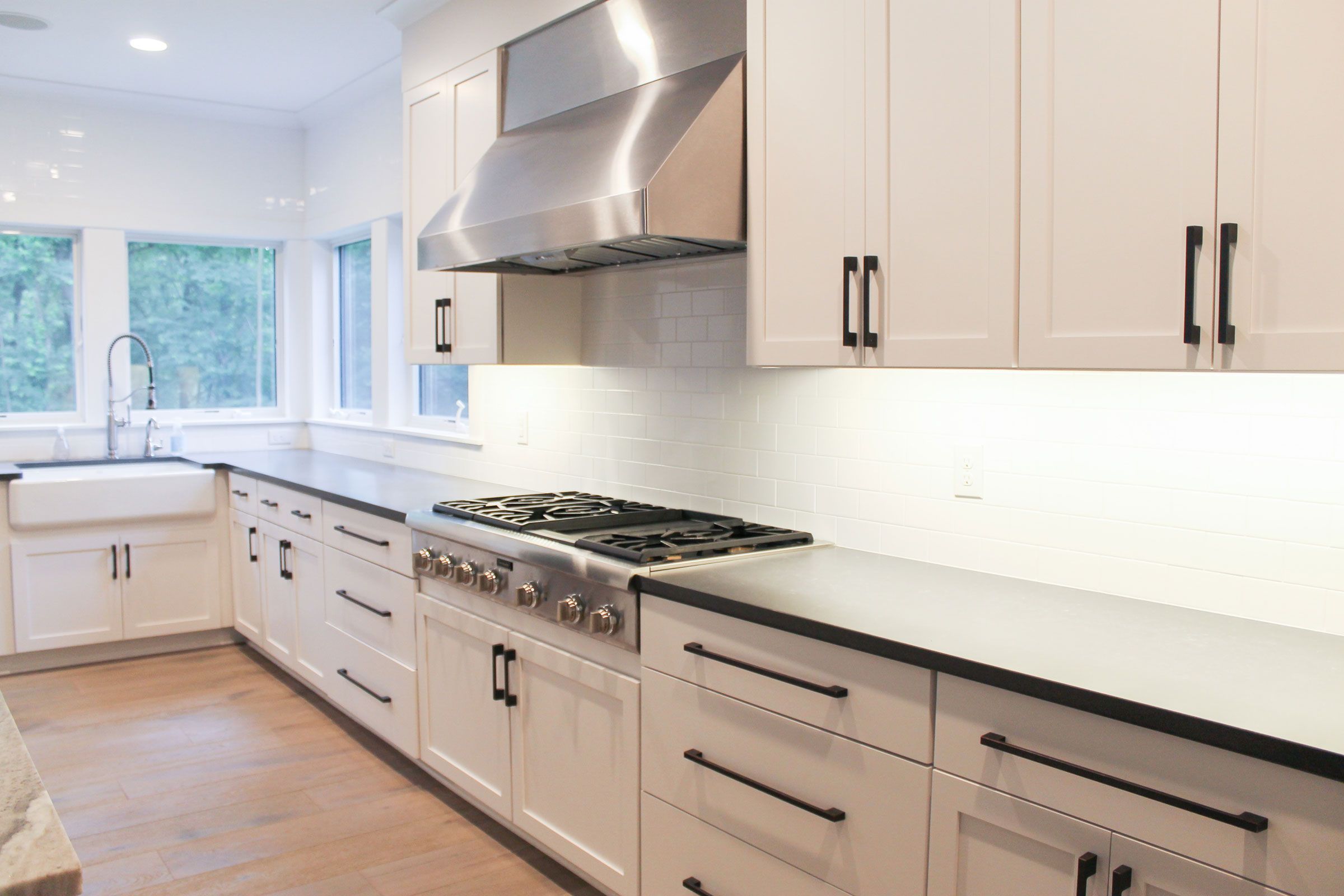When renovating your kitchen or bathroom, choosing the right material for your countertops is a crucial decision. Your choice impacts the overall aesthetic of your space and dictates the functionality and durability of your work surfaces.
Among the most popular materials are Quartz, Granite, and Marble, each with unique characteristics, beauty, and practicality. This comparison guide highlights the strengths and weaknesses of each to help you align your choice with your lifestyle, design preferences, and practical needs.
Whether designing a new home, remodeling your kitchen, or simply exploring future possibilities, this guide will equip you with the necessary knowledge to make an informed decision.
The Basics of Quartz Countertops
Quartz countertops are engineered stone surfaces made from a blend of natural quartz crystals and polymer resins. This composition lends them a highly durable and non-porous nature.
Unlike some natural stone surfaces, quartz doesn't require sealing and is resistant to stains, scratches, and bacteria. It is a practical choice for busy kitchens and bathrooms.
Variety & Color Patterns
The versatility of quartz is evident in its extensive color range and pattern diversity, making it a popular choice for various interior styles.
Engineered from natural quartz crystals mixed with pigments, quartz countertops can exhibit colors spanning from pure, monochromatic hues to intricate designs that mimic the look of natural stones like granite or marble.
The manufacturing process of quartz allows for a remarkable consistency in color and pattern across each slab, ensuring a uniform appearance.
This consistency is particularly advantageous for larger projects where multiple slabs are required, as it simplifies the matching process, providing a seamless and cohesive look throughout the installation.
The Basics of Granite Countertops

Granite is a naturally occurring igneous rock, formed under the earth's surface from cooled lava mixed with other minerals. Its formation process ensures that no two granite slabs are exactly alike.
Granite’s Color Pattern Diversity
Granite's appeal lies in its vast color palette, encompassing a spectrum that includes whites, blacks, greys, reds, greens, and blues, among other hues. This diversity allows it to seamlessly integrate into a variety of design schemes.
Adding to its charm is the uniqueness of its patterns. Each granite slab presents a distinct aesthetic, ranging from subtle speckles that gently enhance its surface to dramatic swirls and veins. This natural variation ensures that every granite countertop is not just a functional surface but a piece of Earth's art, making each installation one of a kind.
The Basics of Marble Countertops
Revered throughout history, marble has been a symbol of luxury and artistic refinement, featured prominently in classical architecture and sculptures.
This classic appeal, combined with its natural allure, continues to make marble a coveted choice for countertops, imbuing spaces with a sense of history and grandeur that few other materials can match.
Marble Color Schemes & Veining
Marble, known for its classic elegance, primarily showcases colors in shades of white and gray. However, it also offers a range of other hues, including subtle pinks, rich greens, and even deep blacks.
What truly sets marble apart is its veining – a natural artistry that gives each slab a unique identity. The veins in marble can range from fine, intricate lines to bold, sweeping strokes, each contributing to the stone’s distinct character and individuality.
This pronounced and varied veining adds to the visual depth and accentuates the stone's luxurious and timeless appeal.
Countertop Material Durability and Maintenance
.png?width=3543&height=2664&name=RP-Email%20background%202%20(1).png)
While all three materials offer unique aesthetic appeals, their durability and maintenance needs vary. Your lifestyle, usage patterns, and willingness to maintain the countertop should guide your choice among these options.
Quartz Durability
Quartz countertops are renowned for their strength and resilience. Thanks to their engineered composition, they are highly resistant to scratches and chips. This durability makes them ideal for high-traffic areas and busy kitchen environments.
Quartz Maintenance
One of the key advantages of quartz is its low maintenance requirements.
Being non-porous, it doesn't harbor bacteria or viruses and is resistant to stains, making cleaning a breeze. Simple wiping with soap and water is typically enough to keep a quartz countertop looking pristine.
Additionally, unlike some natural stones, quartz doesn't require periodic sealing.
Granite Durability
Granite is known for its toughness. It's a hard substance that can withstand significant wear and tear, making it suitable for kitchens and bathrooms. Granite is generally resistant to scratches, heat, and minor chips.
Granite Maintenance
While granite is durable, it requires a bit more care than quartz.
It's a porous material, which means it can absorb liquids and potentially stain if not properly sealed. Granite countertops should be sealed periodically to maintain their resistance to staining and bacteria.
Regular cleaning with mild soap and water is recommended, along with immediate cleanup of spills to avoid potential staining.
Marble Durability
While undeniably beautiful, marble is more susceptible to staining, scratching, and etching than quartz and granite. Acidic substances, like lemon juice or vinegar, can etch the marble's surface, and sharp objects can scratch it.
Marble Maintenance
Marble countertops require regular maintenance to retain their beauty. Sealing is necessary to provide some protection against stains and etches. Immediate cleaning of spills, particularly acidic ones, is crucial to prevent damage. Use specific marble cleaning products or mild soap and water for daily cleaning is recommended.
Granite vs. Quartz vs. Marble Countertops: Installation & Cost Implications

While DIY approaches might be tempting, the complexity and potential risks associated with improper installation can lead to additional costs and damage. Professional installation is recommended to ensure the countertops are fitted accurately and securely, ensuring their beauty and functionality for years to come.
Though the expertise of professionals is invaluable, understanding the installation challenges of each material is important for homeowners.
Quartz Installation
Quartz countertops are generally more forgiving due to their engineered nature. However, precision in measurement and fitting is crucial to avoid unsightly gaps or misalignments.
Additionally, while quartz is durable, it can crack under stress if not handled correctly, especially during transport or fitting around sink cutouts.
Granite Installation
The sheer weight of granite makes it a challenge to maneuver, posing a risk of breakage if not handled correctly. Cutting granite requires specialized tools for precise shaping, as inaccuracies can lead to costly material wastage.
Marble Installation
Marble's susceptibility to chipping and staining requires careful handling during installation. Precision in marble cutting is paramount to maintain its integrity, and even the sealing process needs to be executed meticulously to protect the surface.
Pricing
The price of Quartz, Granite, and Marble varies based on factors like rarity, quality, and origin. Installation costs can also vary, but investing in professional installation ensures the job is done right the first time, safeguarding your investment and avoiding future issues.
Need a price estimate for your home? Request a free quote here →
Quartz vs Marble vs Granite Countertop: Pros & Cons of Each.
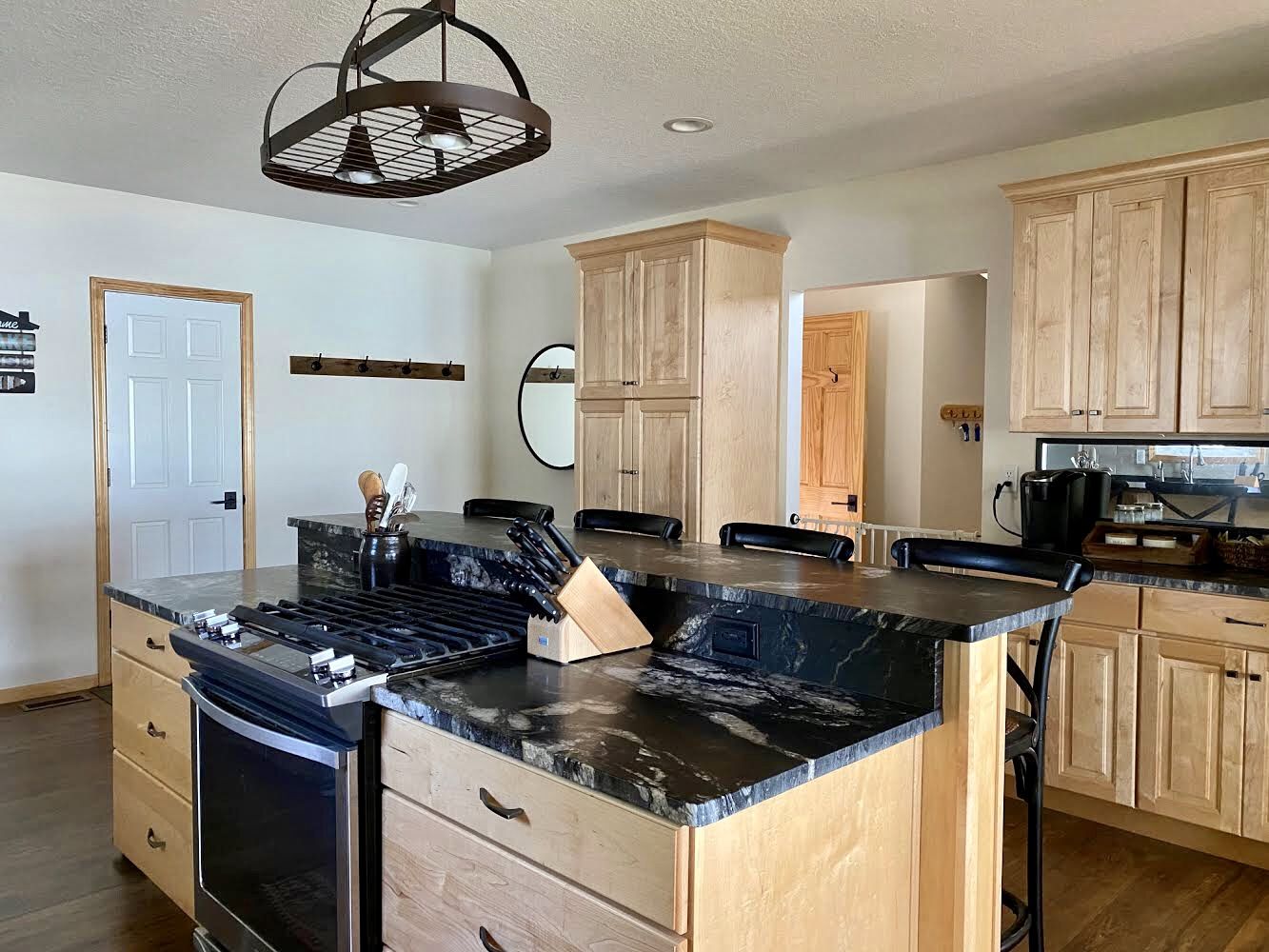
Pros of Quartz, Granite, & Marble |
|||
|
Feature/Aspect of Stone Material |
Quartz |
Granite |
Marble |
|
Durability |
Very durable; scratch and stain-resistant |
Naturally hard and resistant to scratches |
Lasts a lifetime with proper care |
|
Maintenance |
Low maintenance; no sealing required |
Moderate maintenance; periodic sealing needed |
Requires regular sealing and careful maintenance |
|
Aesthetic Variety |
Wide range of colors and patterns; consistent look |
Unique patterns and colors; natural beauty |
Timeless elegance; classic and luxurious appearance |
|
Installation |
Durable but heavy; needs professional installation |
Requires delicate handling and professional installation |
|
|
Eco-Friendliness |
Manufactured but can be eco-friendly depending on the brand |
Natural, but quarrying has environmental impact |
Natural, but extraction and processing have an environmental impact |
Cons of Quartz, Granite, & Marble |
|||
|
Feature/Aspect of Stone Material |
Quartz |
Granite |
Marble |
|
Susceptibility to Damage |
Can be damaged by excessive heat |
Can crack or chip under heavy impact |
Prone to staining, scratching, and etching |
|
Uniformity |
Some might find the look too uniform |
Color and pattern inconsistencies |
Requires more maintenance to retain appearance |
|
Heat Resistance |
Not as heat resistant as granite |
Highly heat resistant |
Less heat resistant compared to quartz and granite |
|
Price |
Mid to high range |
Wide price range, from affordable to premium |
Generally high, especially for rare types |
|
Impact on Resale Value |
Modern appeal can attract buyers |
Considered a premium feature in homes |
Luxurious appeal can significantly increase home value |
Consult With Stone Countertop Experts

Want to explore bathroom or kitchen countertops options in person?
We boast an impressive selection of over 100 full slabs in our warehouse, giving you the rare opportunity to view the entire slab before making your choice. This approach ensures that what you see is exactly what you get – no surprises, just sheer satisfaction.
Visit us at any of our locations to explore your options and get a free, no-obligation quote. At our locations in Warsaw, Elkhart, and Fort Wayne, Indiana, you'll discover a world of possibilities for your countertops. Have questions? Contact our sales team today!
Explore Other Articles
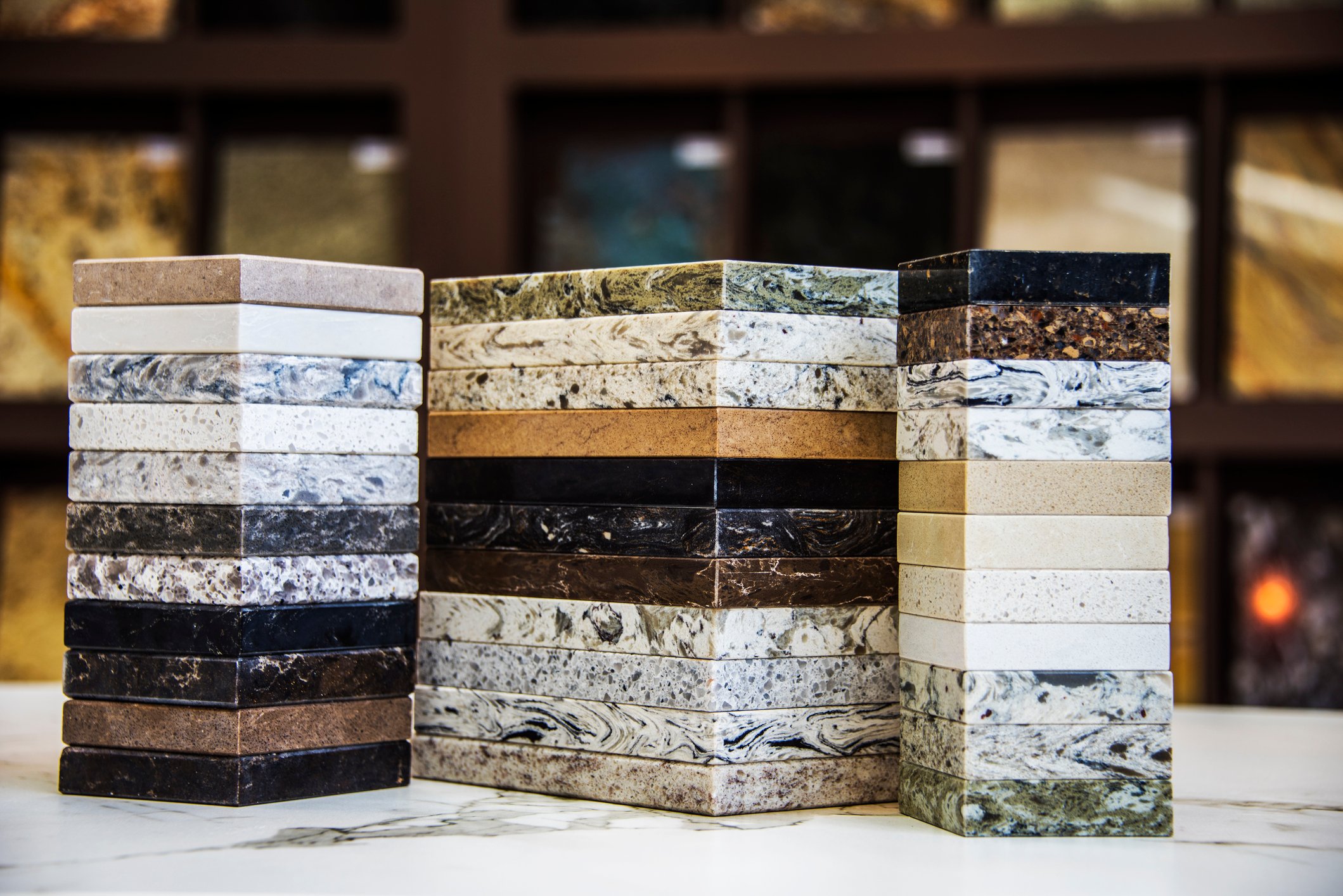
-jpg.jpeg)
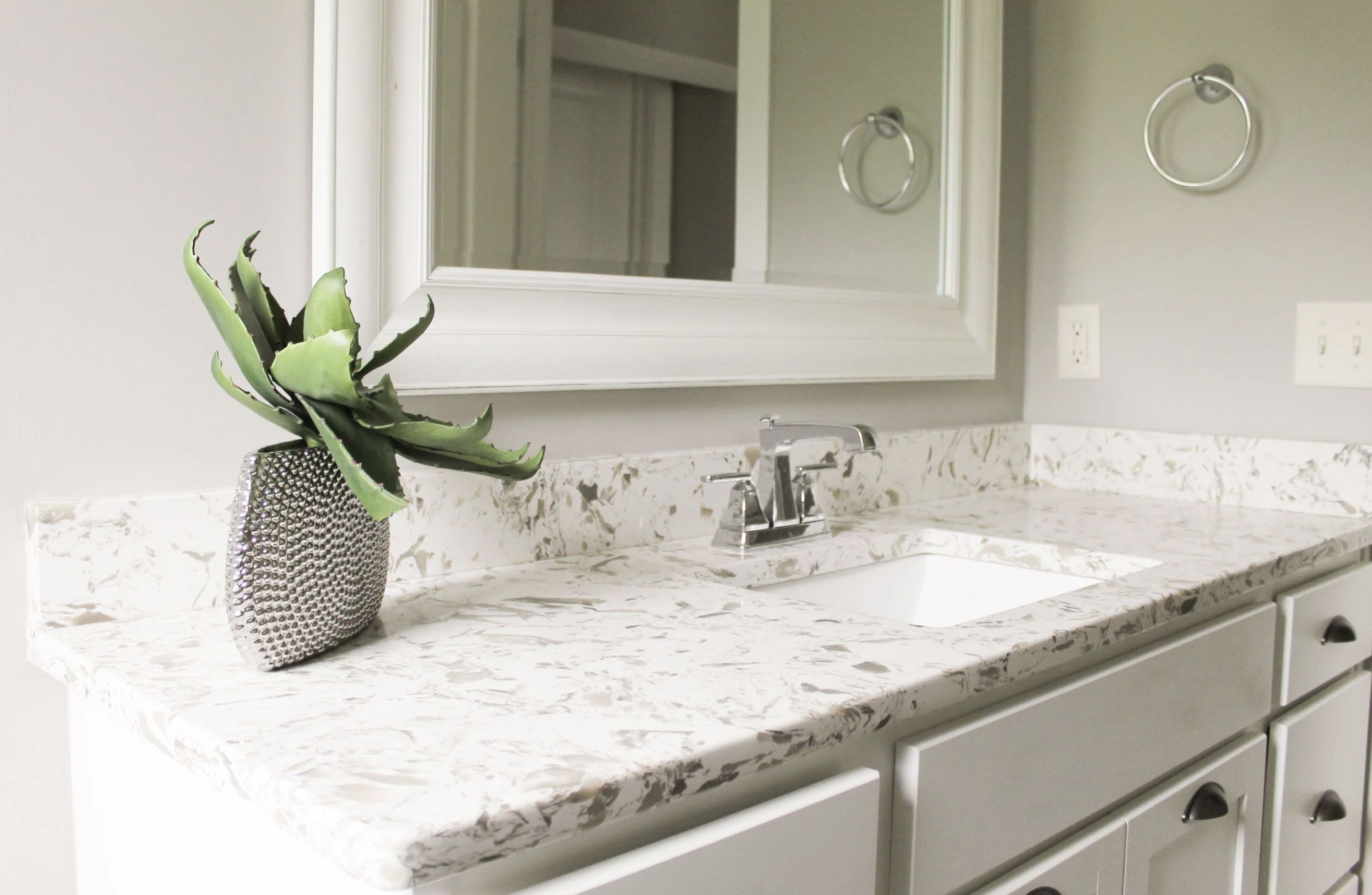
%20(1)-jpg.jpeg)
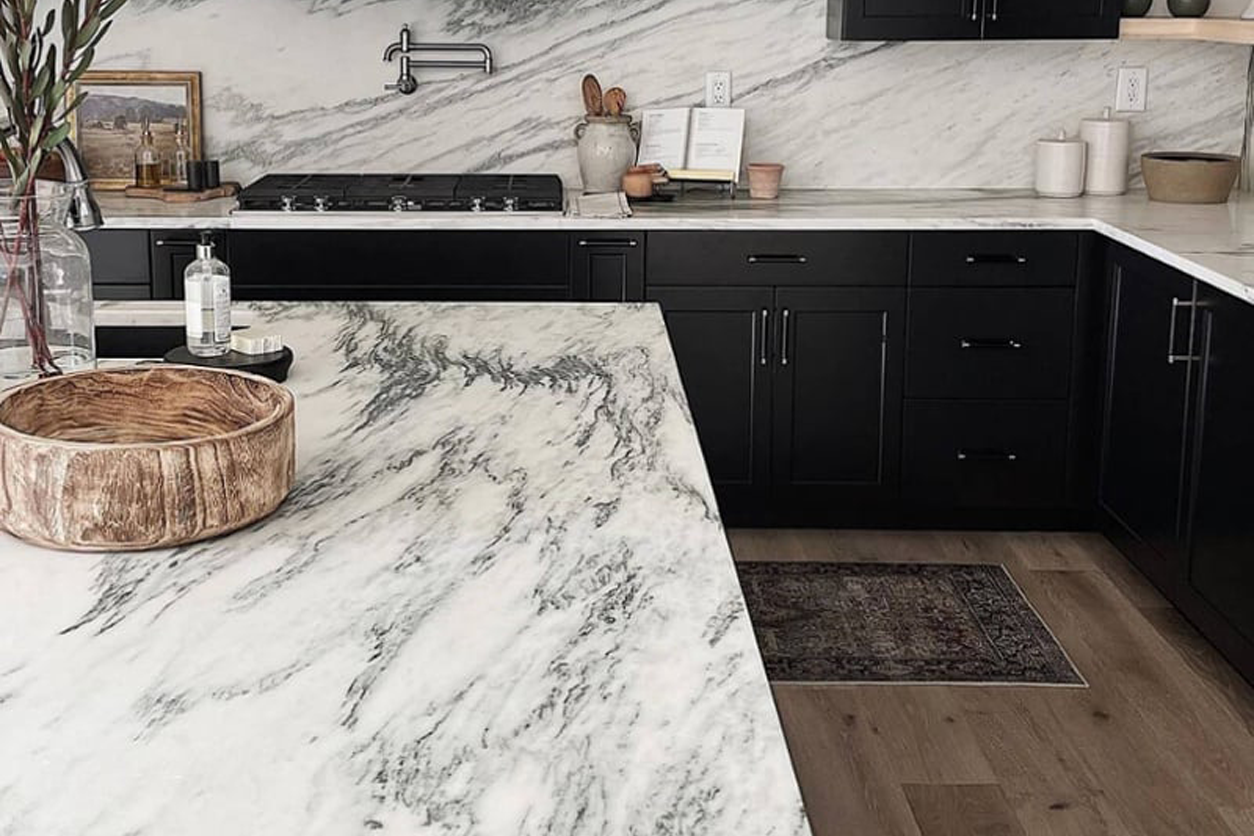

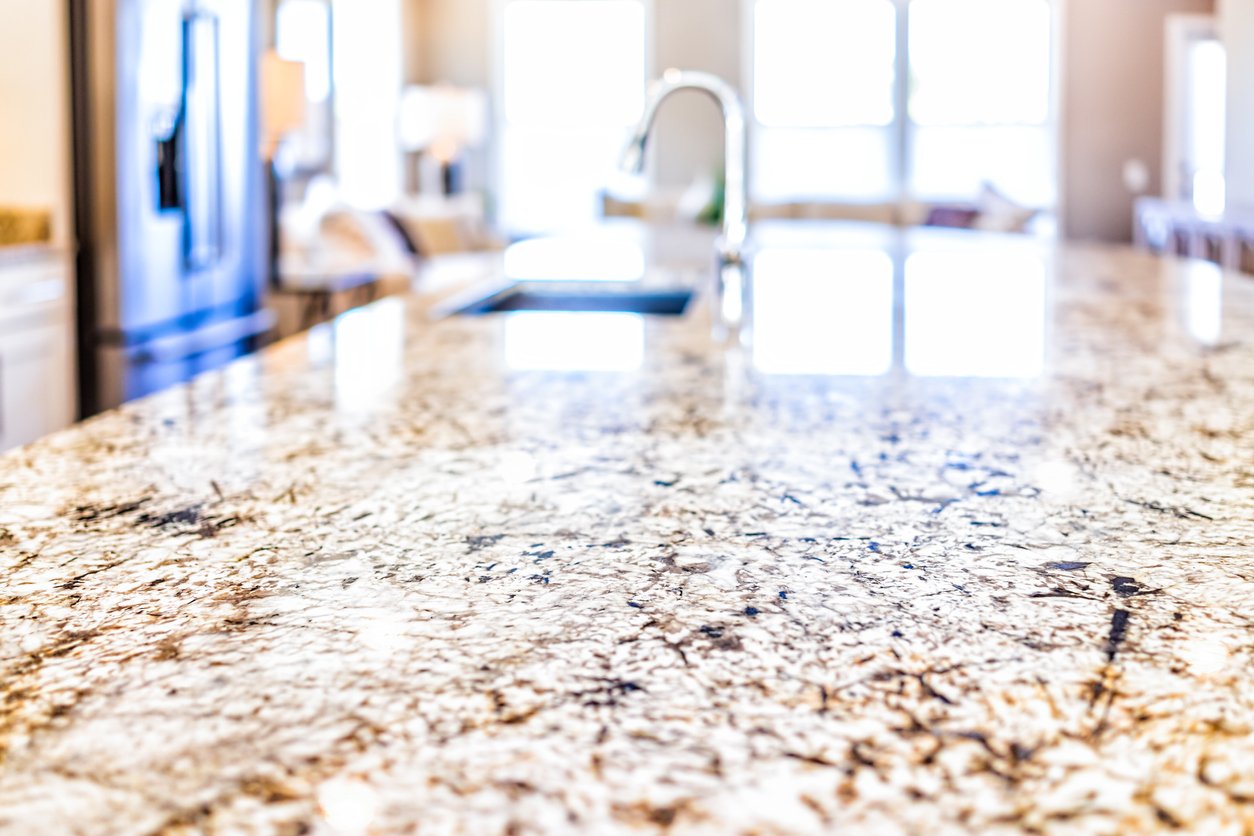
.jpg)
.jpg)

